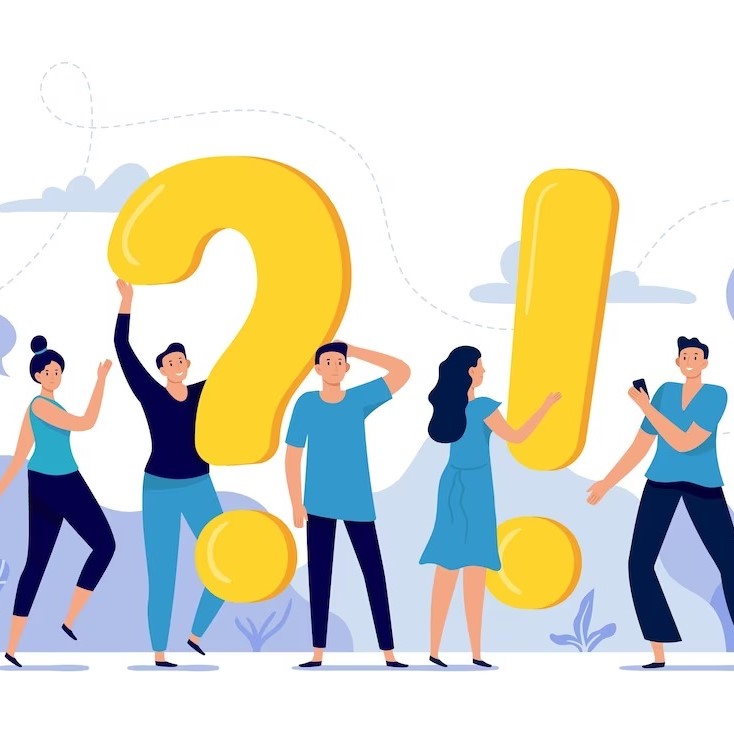20 Open-Ended Questions to Deepen Connections
20 Open-Ended Questions to Deepen Connections
Open-ended questions are a powerful tool that can be used to deepen connections between people. When you ask an open-ended question, it allows the person to answer in their own way, and it shows that you are interested in what they have to say. There are many different types of open-ended questions, and they can be used in a variety of settings. Some examples of open-ended questions include: What do you enjoy doing in your free time? What are your goals for the future? How do you feel about your current job or career?
Using open-ended questions can be especially important in building relationships. If you are trying to create a deeper connection with someone, it is essential that you take the time to really listen to what they have to say. By asking open-ended questions, you can encourage the person to talk about their feelings and experiences, which can help you to better understand them. Additionally, open-ended questions can be used in a variety of situations, from formal business meetings to casual social events.
Overall, open-ended questions are a powerful tool for building connections and creating a deeper understanding of others. Whether you are trying to build a better relationship with a client, colleague, or friend, asking open-ended questions can help you to demonstrate a deeper level of interest and understanding. By taking the time to listen to what others have to say and using open-ended questions to encourage conversation, you can build stronger connections and create a more meaningful dialogue with those around you.
The Role Questions Play in Deepening Connections
The art of conversation relies heavily on the power of questions. When two or more people engage in a thoughtful, intentional exchange, questions become the bridge that deepens the connection. Questions foster understanding, trust, and intimacy by showing a willingness to learn about the other person's world. Active listening to the responses can often give insight into someone's beliefs, values, and experiences. Genuine curiosity about someone else's life allows us to build empathy, creating a more profound connection. In essence, questions are the key to unlocking meaningful relationships.
But not all questions are created equal. The most effective questions come from a place of sincerity, with an openness to the answer, even if it contradicts our beliefs or opinions. Good questions are also open-ended, allowing for genuine discussion and exploration. Avoiding yes or no questions and directing the conversation towards more thought-provoking topics invites more meaningful exchange. Asking questions can be a tool for building bridges, but it can also be used to erect barriers. Asking questions with the intention of cornering or criticizing someone will only create hostility and deepen division.
Questions can also serve as an invitation to reflect on ourselves. When we ask someone else for their perspective, it can lead us to re-examine our own beliefs and motivations. The act of questioning allows us to explore our values, biases, and assumptions. Deepening connections through questions is not just about building relationships with others; it is also about building a deeper understanding of ourselves. Asking honest and open-minded questions can lead to a more profound sense of self-awareness, increasing not only our connections with others but also our understanding of ourselves.
Questions About Outlooks and Activity Preferences
Outlooks and activity preferences are essential components of human behavior, as they play a significant role in shaping the way we interact with others and the world around us. Our outlooks are shaped by our experiences, beliefs, and values, and serve as a guide to our perception and interpretation of events. Meanwhile, our activity preferences determine the things we like to do, and the activities we choose to engage in, which can, in turn, affect our outlooks and shape how we experience the world.
Understanding your outlooks and activity preferences can be instrumental in creating a fulfilling life. When we are aware of our outlooks and activity preferences, we can make choices that are more aligned with our authentic selves, which can lead to greater satisfaction and purpose in life. However, it is important to note that our outlooks and activity preferences can change over time, and it may be necessary to re-evaluate them periodically to ensure that they continue to align with our current aspirations and values.
Research has shown that our outlooks and activity preferences can vary widely between individuals, and even within individuals at different points in their lives. For example, some people may have an optimistic outlook and prefer adventurous activities, while others may have a pessimistic outlook and prefer quieter, more introspective activities. These differences are likely due to a complex interplay of genetic, environmental, and cultural factors, and highlight the importance of a personalized approach when it comes to understanding and optimizing our outlooks and activity preferences.
Questions About Interests and Experiences
Interests and experiences play a significant role in shaping our personality and helping us discover our purpose in life. Our hobbies and passions offer us a window into our inner selves and provide us with opportunities to grow and learn in ways that formal education cannot. Whether it's traveling, painting, or volunteering at a local charity, pursuing our interests and experiences can be both fulfilling and rewarding. They can also help us connect with like-minded individuals and form lasting friendships that enrich our lives.
In today's fast-paced world, where we are constantly juggling multiple responsibilities, it can be easy to lose sight of what truly matters to us. Taking the time to reflect on our interests and experiences can help us reconnect with our authentic selves and gain clarity on our priorities. It can also help us identify what we want to achieve in our personal and professional lives and take steps towards realizing our dreams. By making our passions and hobbies a priority, we can lead more meaningful and fulfilling lives.
However, while it's important to pursue our interests and experiences, it's equally important to strike a balance between work and play. Too much focus on leisure can lead to neglecting other areas of our lives, such as our relationships and responsibilities, which can cause stress and anxiety. On the other hand, neglecting our personal interests can make us feel unfulfilled and unengaged in our daily lives. Therefore, it's crucial to find a balance that works for us, one that allows us to pursue our passions while also fulfilling our obligations and commitments.
Thought-Provoking Questions to Get to Know Someone
Engaging in meaningful conversations is a great way to get to know someone on a deeper level. One of the best ways to do this is by asking thought-provoking questions. These types of questions can help you understand someone's beliefs, values, and way of thinking. Some examples of thought-provoking questions you could ask include: What is your definition of success? What are some of your biggest regrets and how have they shaped you? and What's the most important lesson you've learned in life? By asking these questions, you can start to build a more meaningful connection with someone and get to know them on a deeper level.
When trying to get to know someone, it's important to ask questions that allow them to open up and share their thoughts and feelings. However, it's equally important to listen actively and engage in the conversation. Don't just ask a question and wait for the response; actively participate in the conversation by sharing your own thoughts and experiences. This will create a more dynamic and engaging dialogue, and will show the other person that you are genuinely interested in what they have to say. Remember, building connections with others takes time and effort, and asking thought-provoking questions is just the starting point.
Finally, it's important to remember that everyone has their own unique experiences and perspectives. When asking thought-provoking questions to get to know someone, be respectful and open-minded. Don't judge or critique their answers, but rather seek to understand where they're coming from. By doing so, you will create a safe and welcoming space for open dialogue and meaningful connections. In conclusion, thought-provoking questions are a powerful tool for getting to know someone, but the real key to building strong relationships is to actively listen, participate in the conversation, and be open to different perspectives.
Questions to Get to the Core of a Person’s Beliefs
Asking questions is a powerful way to get to know a person and understand their beliefs. However, it's important to ask the right questions in order to get to the core of a person's beliefs. One effective strategy is to ask open-ended questions that encourage the person to reveal their thoughts and feelings. For example, instead of asking 'Do you believe in God?', try asking 'What is your understanding of spirituality?' This allows the person to share their beliefs in a more nuanced way.
Another important aspect of questioning is to remain non-judgmental and open-minded. Even if a person's beliefs differ from your own, try to approach the conversation with curiosity and respect. Avoid challenging or dismissing their beliefs, as this can shut down the conversation and prevent you from truly understanding their perspective. Instead, try to listen actively and ask follow-up questions to clarify your understanding.
Finally, it's important to recognize that a person's beliefs are often deeply personal and can be influenced by a variety of factors, such as upbringing, culture, and life experiences. As such, it's important to approach the conversation with empathy and a willingness to learn. By asking thoughtful questions and actively listening, you can gain insight into the complex and fascinating beliefs that shape each individual's worldview.
Questions to Understand How They React to Different Situations
One important aspect of understanding individuals is to observe how they react to different situations. This can provide valuable insights into their personality, temperament, values, and beliefs. For instance, some individuals may become angry, defensive, or aggressive when confronted with a challenge or criticism, while others may remain calm, composed, and reflective. By analyzing how individuals react under different circumstances, one can gain a better understanding of their emotional intelligence, resilience, adaptability, and interpersonal skills.
To understand how individuals react to different situations, it is important to ask open-ended questions that allow them to express their thoughts, feelings, and perspectives. For instance, one can ask questions such as, 'How do you usually respond when you face a difficult challenge?' or 'What do you do when someone criticizes you?' These questions can reveal whether individuals tend to avoid, confront, or cope with difficult situations. They can also shed light on their coping mechanisms, problem-solving skills, and attitude towards feedback and criticism. By asking these questions, one can also demonstrate empathy, curiosity, and interest in understanding others.
Another way to understand how individuals react to different situations is to observe their body language, tone of voice, and facial expressions. Nonverbal cues can often reveal more about an individual's emotions, intentions, and attitudes than their words. For instance, an individual who is slouching, crossing their arms, or avoiding eye contact may be feeling defensive, insecure, or disengaged. On the other hand, an individual who is smiling, nodding, or making eye contact may be feeling positive, engaged, or confident. By paying attention to these nonverbal cues, one can complement their understanding of individuals' behavior and communication styles.
Family and Friends Questions to Connect On a Deeper Level
Maintaining relationships with family and friends is essential to our overall health and well-being. However, sometimes we find ourselves stuck in a rut, asking the same old questions over and over again during conversations. If you're looking to connect with your loved ones on a deeper level, try asking some new questions. Dig a little deeper and show genuine interest in their lives. You'll be surprised at how much you can learn about someone you thought you already knew so well!
Sometimes it can feel daunting to come up with new questions to ask, but the key is to remember that they don't have to be complicated. Simple questions like 'What are you reading right now?' or 'What was the highlight of your day?' can open the door to more meaningful conversations. Be curious and genuinely interested in hearing their responses. By asking questions that show you care about their interests and experiences, you'll be able to deepen your connection with them.
Don't be afraid to get vulnerable yourself. Share your own struggles and successes, and encourage them to do the same. Having open and honest conversations builds trust and strengthens relationships. By creating a safe space for your loved ones to share, you'll be able to connect with them on a deeper level and create lasting bonds that will withstand the test of time. So next time you're catching up with your family and friends, try asking some new questions and see where the conversation takes you!
Questions to Learn About Prior Experiences and Mentor Relationships
When it comes to learning from prior experiences, one of the most important questions to ask yourself is what have been the most significant experiences in your life so far? This might include personal triumphs, struggles, or even failures. Understanding these experiences can help you identify patterns in your behavior, relationships, and overall approach to life. It can also help you develop a greater sense of self-awareness, which is a critical tool for personal growth.
Another important question to ask when reflecting on your past experiences is what you have learned from them. Every experience has the potential to teach us something valuable, whether it's a lesson about ourselves, about others, or about the world around us. By identifying what you have learned from your past experiences, you can begin to apply those lessons to new situations and challenges. This can help you avoid repeating past mistakes and make more informed decisions about your future.
Finally, when it comes to mentor relationships, there are a few key questions to keep in mind. These might include what you hope to gain from the relationship, what skills or knowledge you're looking to develop, and how you can best communicate with your mentor. By keeping these questions in mind, you can ensure that your mentor relationship is mutually beneficial, respectful, and productive. Remember, a mentor relationship can be a powerful tool for personal and professional growth, but it's important to approach it with intention and purpose.
Questions to Understand Values and Personal Priorities
Values and personal priorities influence our daily lives by guiding our decision making, shaping our behavior and reflecting our beliefs. It is essential to understand our values and priorities to lead a fulfilling life that aligns with our values. Identifying our values helps us create a roadmap for our careers, relationships, and personal growth that reflect our beliefs and priorities. Our priorities can change over time, depending on our stage of life, experiences and circumstances. Therefore, it is crucial to re-evaluate and update our values and priorities regularly to ensure we are living a life of purpose and fulfillment.
Questions help us identify and understand our values and priorities better. Some of the questions that we can ask ourselves include, what do we care about the most, what brings me joy, what are the things that matter most to me, and what motivates me. These questions help us reflect on our experiences and beliefs and guide us towards our personal growth and development. Through self-reflection, we can identify what we stand for, and what we want our lives to look like. By understanding our values and priorities, we gain insight into how we want to show up in the world, and what we want to achieve.
Values and personal priorities are the foundation of a fulfilling life that is aligned with our beliefs and aspirations. It is essential to identify and understand our values and priorities regularly as they play a significant role in our decision making, relationships, and well-being. By asking ourselves the right questions, we can gain clarity on what we care about the most, what we want to achieve, and how we want to show up in the world. By living life with intention and purpose aligned with our values, we can lead a fulfilling and meaningful life that reflects our true selves.
Questions to Understand How Someone Views Money and Work
The way someone views money is often shaped by their upbringing, personal experiences, and cultural background. Some people view money as a measure of success and prioritize earning as much as possible. Others view money as a means to an end, valuing financial stability and security over extravagant spending. Understanding how someone views money can shed light on their priorities and may reveal potential motivations and goals.
Similarly, an individual's view of work can say a lot about their personality and values. Some people see work as a necessary evil, something they have to do to make a living. Others see work as central to their identity and take pride in their profession. Understanding how someone views work can provide insight into their work ethic and level of job satisfaction.
When it comes to money and work, it's important to ask questions to gain a deeper understanding of someone's perspectives. Questions such as 'What motivates you to work hard?' or 'How do you prioritize spending and saving?' can help uncover someone's financial priorities and work ethic. By asking the right questions and listening to the answers, we can gain a greater appreciation for how different individuals approach these important areas of their lives.
Questions to Reveal What Someone Gets Excited About
Excitement is contagious. When someone’s passionate about something, it draws us in and can inspire us to take action or try something new ourselves. But how do we uncover what someone truly gets excited about? Asking the right questions is key. Whether it’s a job interview, a first date, or simply wanting to get to know someone better, here are some questions to help reveal what makes someone’s heart skip a beat. Starting with, "What’s your favorite hobby and why?", can help us understand what leisure activities truly excite them. This can lead to discussing future plans for those hobbies or even trying them together.
Another question to ask is, “What is something you can talk about for hours without getting bored?” This not only helps reveal what they’re passionate about, but also their level of knowledge and expertise on a given subject. It’s also an opportunity for them to shine and share their skills and experiences. If they struggle to come up with an answer, it might indicate they haven’t found their true passion yet.
Lastly, asking about their goals and dreams can reveal significant insights into what excites them. By understanding what someone is striving for, we can gain a deeper understanding of their motivations, values and what drives them to succeed. This question can also lead to discussions about potential obstacles and how to overcome them. By asking these questions, we can get to know someone on a deeper level and find out what truly makes them come alive.
Questions to Help Deepen Ties and Create New Connections
One way to deepen ties and create new connections is to ask thoughtful questions. When you meet someone new, don't just ask surface-level questions like where they're from and what they do for a living. Instead, try to ask questions that will give you a better understanding of who they are as a person. Ask about their passions and interests, their values and beliefs, and any experiences that have shaped their worldview. By showing a genuine interest in someone else's life, you'll create a deeper connection that can serve as the foundation for a lasting relationship.
Another way to deepen ties is to ask for advice or opinions. People love to feel helpful, so if you're struggling with something, don't be afraid to ask for advice. Whether it's a work-related challenge or a personal issue, asking for someone else's perspective can help you gain new insights and perspectives. And by expressing vulnerability and seeking guidance, you'll also create a deeper level of trust and intimacy with the other person.
Finally, one of the best ways to deepen ties and create new connections is to simply listen. When you're having a conversation with someone, be fully present and engaged. Don't just wait for your turn to talk; instead, actively listen to what the other person is saying. Paraphrase what they've said to ensure that you've understood them correctly, and ask follow-up questions to show that you're interested and engaged. By being a good listener, you'll create a safe space where people feel valued and heard, which can be a powerful way to deepen relationships.
Questions to Invoke Insightful Conversations
When engaging in casual conversation, it's easy to fall into the trap of talking about surface-level topics like the weather or current events. While these discussions have their place, they don't usually lead to engaging and meaningful conversations. To truly connect with others and gain new insights, it's important to ask thought-provoking questions. These questions can be about nearly anything, from personal beliefs and experiences to broader philosophical or political issues.
One type of question that can help spark insightful conversations is open-ended questions. These are questions that can't be answered with a simple yes or no, and usually require some explanation or elaboration. Examples of open-ended questions might include 'What does success mean to you?' or 'What do you think is the biggest challenge facing our society today?' By asking open-ended questions, you're inviting others to share their opinions, experiences and ideas. This can help you gain new perspectives, and really get to know the people you're talking to on a deeper level.
Another type of question that can spark insightful conversations is reflective questions. These are questions that ask others to reflect on a specific experience or situation. Reflective questions can help others gain deeper insight into their own thoughts and feelings, as well as help them learn from past experiences. Examples of reflective questions might include 'What did you learn from your most recent job?' or 'What were your key takeaways from your recent trip?' By asking reflective questions, you're showing others that you're interested in their experiences and helping them gain new insights about themselves and the world around them.



